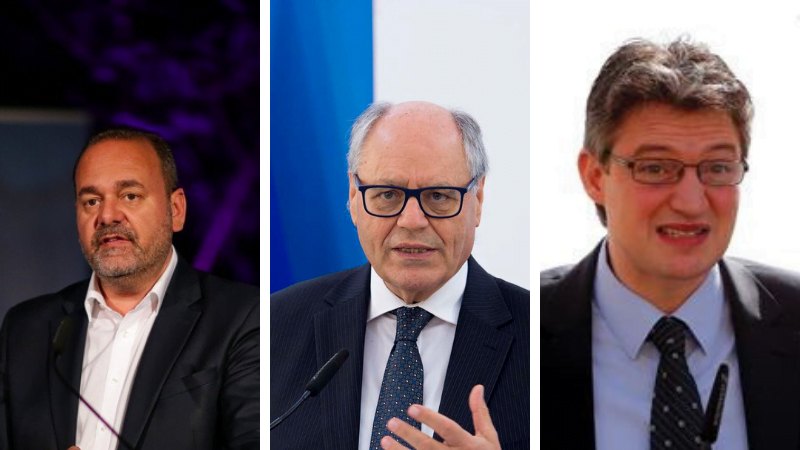Magistrate Doreen Clarke has upheld a request filed by civil society organisation Repubblika for a magisterial inquiry into the actions of three ministers in relation to the Vitals Global Healthcare (VGH) deal on three of Malta’s public hospitals.
This is the second magisterial decree stating that Economy Minister Chris Cardona, Finance Minister Edward Scicluna and Tourism Minister Konrad Mizzi (who negotiated the deal when Health Minister) should be investigated.
The ministers had appealed a previous decision by Magistrate Claire Stafrace Zammit who had ruled that they should be investigated on the transfer of St Luke’s, Karin Grech and Gozo hospitals to VGH worth €70 million per year, then transferred to Steward Healthcare for €1.
Judge Giovanni Grixti had then overturned the magistrate’s order, ruling that the three Ministers should not be investigated based on “conjecture” by journalists. He had stated that Magistrate Stafrace Zammit based her decision on information brought forward by Repubblika which was, in turn, based on a “collection of opinions by journalists and bloggers who chose to join forces to expose as fact that the four suspects had devised a plan to award the hospitals’ contract to VGH, in order to benefit those involved in the deal”.
Judge Grixti also had said that ”the crux of the allegations rely almost entirely on unidentified sources” and that there was “absolutely no form of control” on conclusions of journalists and bloggers, statements that the three Ministers pushed to back their claims of being “framed” and that reports of wrongdoing were nothing more than “character assassinations”.
The “abusive language” against The Shift – the news portal that revealed most of the evidence on the corrupt deal – used by the three Ministers in their court application was reported as a threat to press freedom by European monitoring portals.
Repubblika then filed a new court application that has now led to a second decree, this time by Magistrate Clarke, that again puts the three Ministers under the spotlight.
Magistrate Clarke pointed out that it was important that the distinction was made between the legal requisites for an inquiry and the aim behind it. It was not up to the person requesting an inquiry to provide the Magistrate with evidence on whether a crime was committed. Their duty was to provide all the information about the relevant facts and about any evidence that needed to be preserved.
She also noted that the three Ministers made certain submissions and referred to events to prove that their actions were legitimate. However, at this stage, the process was not about establishing whether a crime had been committed but whether the facts listed by Repubblika would justify an examination of the facts for potential prosecution of a crime with a jail term of more than three years.
In its submissions, Repubblika had presented a series of facts backed by evidence that could indicate that a crime had been committed, which led Magistrate Clarke to believe that there were all the elements required by law for an inquiry to take place.
In her decision, Magistrate Clarke said the magisterial inquiry should be combined with a separate, ongoing inquiry into money laundering and corruption into the same business deal involving Ivan Vassallo.
Unlike the three Ministers, Vassallo had not appealed the decree, so a magisterial inquiry into his actions is ongoing. This would put the three Ministers back to being subjected to the same investigation. They can still appeal the second ruling.
Take a look at the evidence revealed by The Shift on the controversial deal here.














